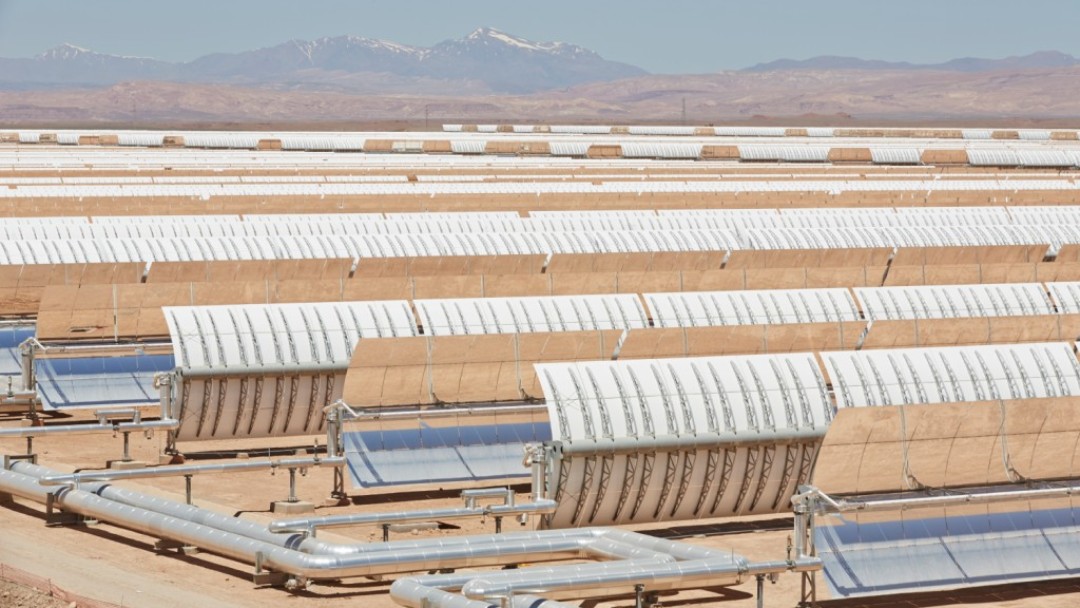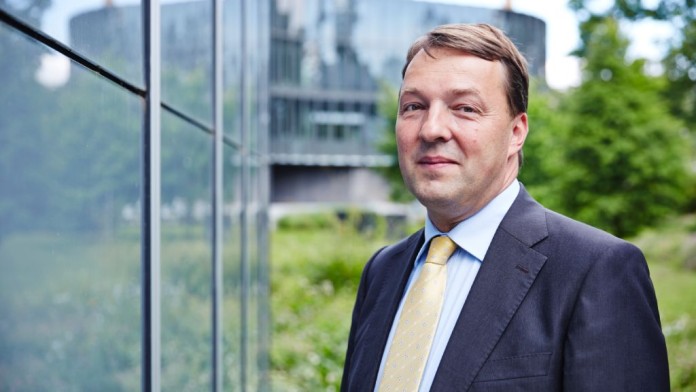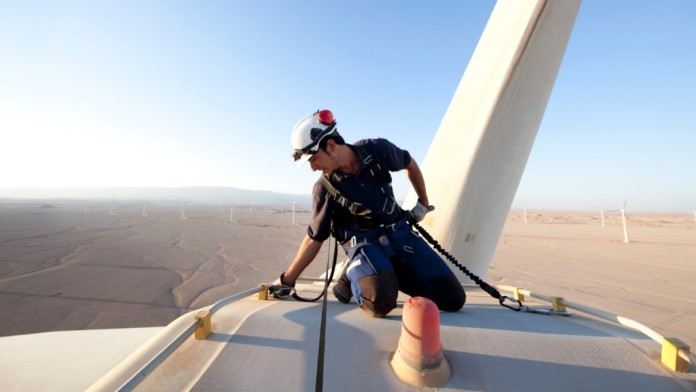News from 2015-11-23 / KfW Development Bank
"Germany is an international trailblazer"
Talk with Dr. Jochen Harnisch, Sustainability Officer
A certificate from the Nobel Committee adorns the wall in the office of Jochen Harnisch, Head of KfW Development Bank’s Environment and Climate Competence Centre and the bank’s Sustainability Officer. His work as lead coordinating author from 2000 onwards helped to clinch the Nobel Peace Prize for the Intergovernmental Panel on Climate Change (IPCC) in 2007. Dr Harnisch, who has a PhD in physics, and his 15 employees work to support KfW Development Bank’s efforts in the fields of climate protection and adaptation to climate change.
Do we have a clear enough understanding of the impact of climate change to be able to implement the right measures?
We know that climate change is happening,but how exactly it will unfold in the future is still unclear. But this does not mean that we should simply sit back and wait. There are already significant deficits with respect to adapting to our current climate, and these will only become worse as time goes on. That‘s because adapting to climate change involves adapting to the existing variability of the climate as well as the anticipated change. The reliability of the forecasts for climate change varies from region to region. The trend at least is clear for about half of the regions, for example with respect to levels of precipitation or the frequency of droughts. But this is not the case for the other half. This is because there is not as much data available in those areas, and the meteorological processes in tropical regions are often more complex than in our latitudes.
So the forecasts are particularly uncertain for those regions where many developing countries are to be found?
That‘s right, but the problem sounds worse than it is. We need to adapt to the current climate and the future climate change. There is a massive shortfall in investment in many developing countries. Adapting to climate change should not be considered as a separate topic, but rather as an integral part of good development and good planning.


Adapting to climate change is estimated to cost hundreds of billions every year. Who can pay for it?
It is difficult to put an exact number to the costs, but they will be high. It is not clear what qualifies as adaptation to climate change and what does not.The industrialised countries will bear some of the costs, as they recently reaffirmed at the "Financing for Development" conference in Addis Ababa. However, only some of the necessaryinvestment can be financed via development cooperation. Good governance is required, as is the mobilisation of domestic tax revenues and their distribution for the benefit of the entire population.
Industrialised countries have achieved a remarkable standard of living by exploiting natural resources.The emerging economies are hoping to follow in their footsteps, but climate protection calls for limits on the use of natural resources. Does protecting the climate pose an obstacle to escaping poverty?
We should guide developing countries onto a low-emissions path to development.Their growing economies require large amounts of energy, and they often still rely on coal, gas, large hydropower facilities or nuclear power. Although there is a lot of money available for the transformation processes required to limit global warming to two degrees, it is by no means enough to make renewable energies the universal standard.
Morocco has built a large-scale solar power plant in Ouazarzate with support from the German Federal Government and other donors. Would decentralised facilities not make more sense than mega-projects?
The exemplary solar farm shows the potential offered by solar energy in a developing country with high levels of expertise and ownership, if international donors are involved. Decentralised solutions can make sense in particular cases for hospitals, schools and villages in remote locations. Decentralised supply is undoubtedly an important approach in Africa in particular, but more as a starting point. As development progresses, centralised networks will continue to be built that allow fluctuating levels of consumption and generation to be managed efficiently. We should implement the one without neglecting the other.
Many of KfW Development Bank‘s efforts to protect the environment promote technological solutions. Is that enough?
We will not be able to produce the emissions trends required to achieve the twodegree target without changing our way of life, even if this has often not been said explicitly in the past. The use of climate- friendly technology alone can help prevent the worst of climate change, but no more.

How can compensation payments for avoiding emissions such as the REDD system (Reducing Emissions from Deforestation and Forest Degradation) help protect the climate?
The trading of climate protection certificates has not produced the desired effect. The REDD system was developed to combine the protection of forests and the climate. The idea is to help create specific framework conditions for each country instead of focusing on individual areas in need of protection, in order to effectively put an end to deforestation.
KfW is one of just 20 institutions around the world that are developing programmes and projects for the Green Climate Fund (GCF). To what does it owe this honour?
We have worked hard to earn it, by striking the right balance of innovation, widespread impact and reliable implementation. Our partners in developing countries know that we will not patronise them, and that we will support them with our expertise and stamina.
What opportunities does the fund offer?
The initial capitalisation has already been secured thanks to the fact that the industrialised countries have issued commitments and the first contributions have been paid in. The projects that will be implemented will be decided at the next meeting of the GCF board in November. The tools that the GCF will have at its disposal are not yet clear. Will they be more in the form of loans or grants? The long-term relevance of the GCF also depends on the political momentum following the COP 21 international climate conference in Paris.
Germany has decided to implement an ambitious energy turnaround. Does it serve as model for other countries?
Germany is an international trailblazer. No other country follows such a consistent approach or provides as much funding for climate protection and adaption in developing countries. I would like us to find the courage to set our own course instead of simply looking to international processes. We should work with partner countries with pragmatism and flexibility to develop specific approaches that are acceptable for the local decision-makers and population in the long term.
Questions by Charlotte Schmitz

Share page
To share the content of this page with your network, click on one of the icons below.
Note on data protection: When you share content, your personal data is transferred to the selected network.
Data protection
Alternatively, you can also copy the short link: https://www.kfw-entwicklungsbank.de/s/enzBWrMC.BL6A
Copy link Link copied